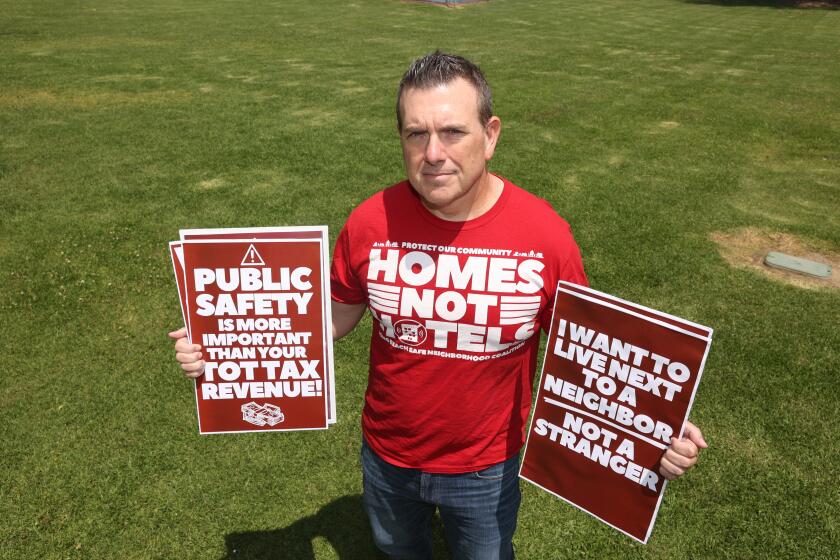Projects Revived as Judge Voids Building Ban : Development: Permits for about 60 housing units must be processed by the city under laws in effect before the moratorium, which was declared illegal.
The city of Glendale must allow three housing projects to go forward because they were stalled by a 1988 city building moratorium that was later invalidated by the courts, a Superior Court judge has ruled.
Superior Court Judge Edward M. Ross ruled last month that because the city enacted the moratorium illegally, it had no right to turn away the developers.
On Sept. 27, 1988, the Glendale City Council froze development of multifamily units to give planners time to revise building rules to curtail construction. But one year later the state Court of Appeal declared the moratorium invalid because the city had not allowed five days to elapse between its introduction and adoption.
A new moratorium was adopted after the appellate ruling, but three developers who tried to submit plans during the original freeze later petitioned the court for permission to proceed with their projects.
Ross said the city lost a gamble when it tried to stop builders with a flawed moratorium.
“When you really get down to it, it’s not a hard case,” the judge told Deputy City Atty. Ron Braden, according to a court transcript. “You rolled the dice, and you crapped out.”
Ross ruled that the city must process the three projects, together involving about 60 apartments or condominiums, under the laws that were in effect at the time.
In an attempt to curb rampant construction of multifamily housing, the city has recently adopted more stringent design standards and is nearing the adoption of zoning changes that will reduce the number of units that can be built on each lot.
The city has asked Ross to reconsider and clarify his decision at a hearing Tuesday. If the judge stands by it, the city could appeal to a higher court, said Glendale City Atty. Scott Howard.
“We’d like the judge to reverse himself,” Howard said. “We think he was wrong.”
Even if the ruling stands, Howard said, he does not believe it will open the door to a flood of new applications by builders who claim they would have developed during the period when the illegal moratorium was in place. Ross stated his ruling applies only to the three developers who provided documentation that showed their projects were ready for city processing during the freeze.
“The court treated it very narrowly, and we treat it likewise,” Howard said.
The ruling was sought by the Moratorium Litigation Committee, a business group that successfully challenged the legality of the building freeze. Developer Haik Vartanian, who chairs the committee, said Ross’ decision represented a test case. But he was uncertain how many other developers will try to get approval for projects that were turned away.
“If there are other projects, they’ll have to be looked at individually on their own merits,” Vartanian said.
Donna Mashburn, one of the developers included in Ross’ ruling, said she and her husband bought property on California Avenue and spent two years and $30,000 on plans to build a 37-unit apartment project. She said they were just about to process their plans when the city enacted the moratorium.
The two-year delay has led to a financial strain and forced the couple to relocate to Washington state, Mashburn said. “They took away our means of getting a home and took away our livelihood,” she said.
Sarkis Krikorian, another developer affected by the ruling, said he has been making mortgage payments on a $900,000 parcel for two years while waiting for the city to process his plans for a 12-unit condominium complex. He said he needs to build under the old city rules because the guidelines now being considered by the council would cut his project in half.
“I wouldn’t even break even,” he said. “I would lose money.”
But Councilwoman Ginger Bremberg said the city is not to blame.
“Where does it say that government’s responsibility is to guarantee a profit?” she asked. “Building is a speculative business at best. I don’t think it’s the taxpayers’ responsibility to guarantee them a profit if we don’t guarantee a profit to shoe stores or other businesses.”





